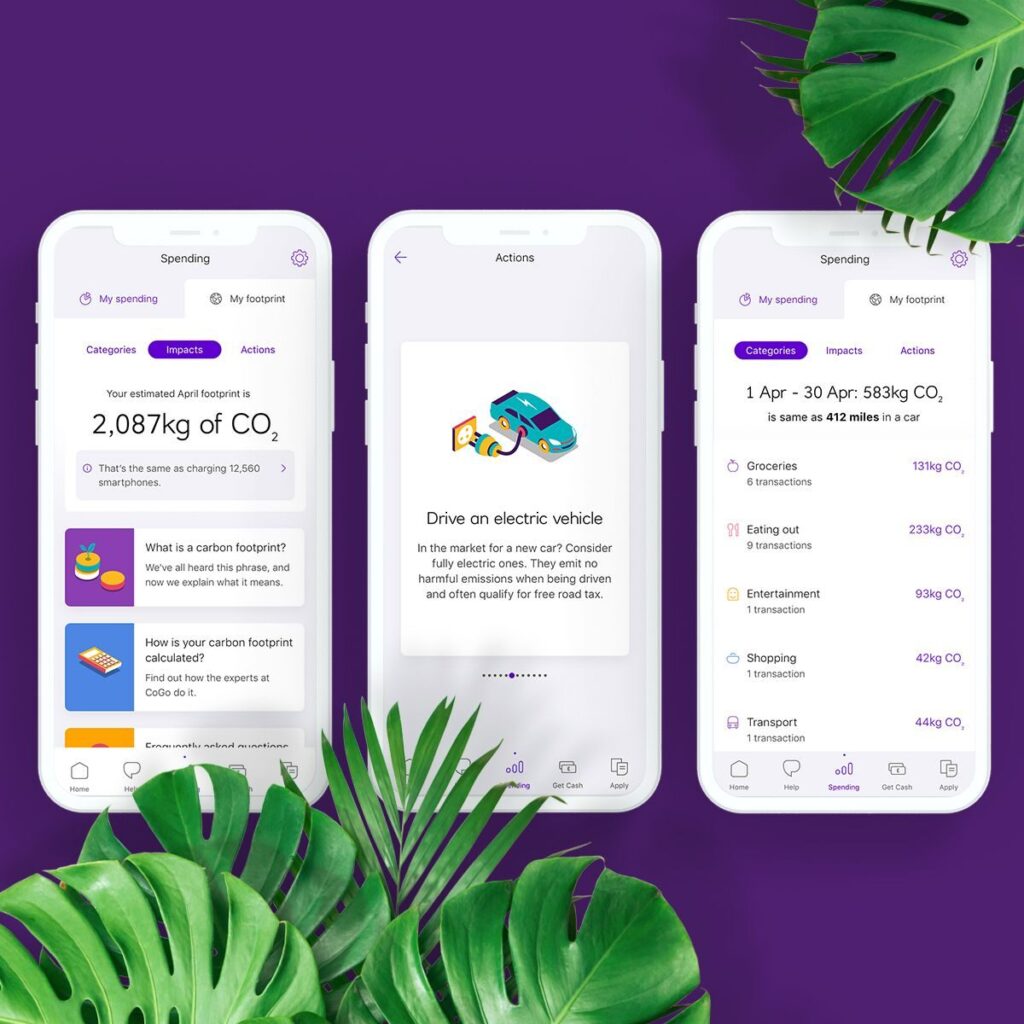NatWest Gives In to Pressure from Livestock Lobby, Waters Down Advice to Eat Less Meat & Dairy
6 Mins Read
NatWest has scaled back its dietary recommendations to users of its banking app after months of lobbying pressure from livestock farmers.
UK bank NatWest has made changes to the carbon footprint tracker on its app, which previously recommended users eat less beef and dairy, after facing backlash from the National Farmers’ Union (NFU).
The app advised Brits to “swap out beef” and “swap to plant-based milk” to lessen their climate impact, but NatWest has now removed these recommendations, instead adding a suggestion to “buy local, British and seasonal produce”.
This is thanks to pressure from the NFU, which welcomed the changes but still expressed disappointment over what it labelled “oversimplified messages” that “do not support British agriculture”.
NFU argument goes against multiple studies

The emissions tracker was added to the NatWest app in 2021. But last November, the NFU raised concerns about the diet-related recommendations. Users received a personalised carbon footprint score each month, with the bank (correctly) noting that cutting out red meat and replacing dairy with plant-based milk can help lower their CO2e emissions by 12kg and 6kg, respectively.
Upon review, NatWest has now removed these recommendations, despite extreme weather and record rain leaving the British agriculture industry “on the brink”, with many farmers considering quitting the profession altogether, their confidence at a 14-year low.
Research has shown that a vegan diet can reduce emissions, water pollution and land use by 75% compared to a meat-rich diet. Even if we replace just half of our meat and dairy intake with plant-based analogues, the result would be a 31% reduction in agricultural emissions, 12% decrease in land use, and effectively an end to deforestation.
The NFU, however, argues that the country’s meat and dairy are “among the most sustainable in the world, with UK beef emissions less than half the global average”. However, this fails to accommodate its methane emissions, 48% of which comes from agriculture. The gas – 80 times more potent than carbon – is a byproduct of enteric fermentation from livestock farming, and the decomposition of manure under anaerobic conditions.
“Purely focusing on GHG emissions overlooks these benefits entirely and oversimplifies a nuanced topic,” said David Barton, chair of the NFU’s livestock board. The association specifically asked NatWest to add the recommendation to “buy local, British and seasonal produce”, perpetuating the misconception that locally produced meat is somehow sustainable.
Farm and land use emissions from producing these animal foods are the main culprits – transportation makes up only a fraction of the total. Analysis by Our World in Data shows how buying imported beef from Central America in the UK versus buying local makes barely any difference.
A study by think tank the Green Alliance found that 63% of the UK’s farmland is used to grow food for livestock, but suggested that if significant policy shifts are undertaken to replace over two-thirds of meat and dairy sales with alternative proteins by 2050, it would free up 57% of the UK’s agriculture area.
Additionally, a 2022 report by the WWF asserted that UK farmers must reduce their meat and dairy production by a third in the next decade to meet climate goals. The country has fallen behind on its path to net zero by 2050, although hopes are that the new Labour government will accelerate the transition.
Farmers’ union ‘disappointed’ at remaining plant-forward advice

The NFU said red meat and dairy are “recognised as an essential part of a healthy diet”, being rich in protein and calcium, and providing nutrients like iron, zinc and vitamin B12.
This (alongside the sustainability argument) echoes the rhetoric of the Agriculture and Horticulture Development Board, which falls under the wing of the UK’s Department for Environment, Food and Rural Affairs, and has been promoting local beef, lamb and dairy at the expense of plant-based foods.
But British doctors have hit back at these claims, labelling them “disingenuous” and “at odds with established scientific evidence on healthy and sustainable diets”. In an open letter, they noted how the WHO classifies red meat as a possible carcinogen, underscored its links with type 2 diabetes, and outlined how it could save the National Health Service millions.
While NatWest removed the beef and dairy recommendations as measures to reduce emissions, it has retained several others that promote a plant-forward diet. This includes “veggie Mondays’, “choosing vegetarian at home”, and “choosing (mostly) plant-based”. It also suggests its users add tofu and lentils as substitutes for meat.
This has left the NFU disappointed. “We understand that the NatWest app is primarily focusing on GHG emissions, but the reality is that when making diet-related recommendations, other factors such as nutrition, environment, and biodiversity must be presented,” said Barton.
“We are continuing our conversations with the bank about the nutritional and biodiversity benefits eating meat provides as currently the app’s tracker only focuses primarily on greenhouse gas emissions,” he added.
“Despite this disappointment, I am pleased to see some changes being made to the ‘carbon tracker’ on its personal banking app, following NFU engagement with NatWest at a senior level over several months.”
NatWest highlights its role as an agricultural lender

NatWest’s own climate goals aim for net zero by 2050, with the bank achieving a 23% reduction in scope 3 emissions last year, compared to 2019 levels. But its in-app U-turn should come as no surprise. In its own words, the bank is “one of the largest lenders” to the agriculture sector, where subsidies are directed heavily in favour of livestock farmers.
The UK spends £3B on farming subsidies annually, at least half of which goes to livestock. In the EU, the animal agriculture industry received 1,200 times more public funding than alternative protein startups between 2014 and 2020, with cattle farmers making half their money through these funds, according to a study by Stanford University. “It’s clear that powerful vested interests have exerted political influence to maintain the animal-farming system status quo,” said co-author Eric Lambin.
But it’s not just governments; the private sector has been heavily supportive of the livestock industry. Since the Paris Agreement in 2015, banks and private financiers have provided $615B in credits to the world’s 55 largest livestock companies.
While NatWest says it has committed “£6.7B of funding to support farmers to fund climate and sustainability-related projects”, it has also previously published a ‘myth-busting’ article on its website that includes inputs from meat farmers arguing that livestock is, in fact, sustainable.
The World Bank’s private sector arm, the International Finance Corporation, has also provided at least $1.6B to industrial livestock farming projects since 2017. But in a landmark report in May, the global bank asked countries to redirect subsidies from red meat and dairy to lower-emission foods like fruits, vegetables and poultry. It further encouraged greater adoption of alternative proteins, which represent a low-cost, highly effective solution in mitigating climate change.
“The transition to a low-carbon economy is a topic of interest to many customers and sectors, including farming and agriculture,” NatWest said in a statement. “We will continue to support our customers in their sustainability journeys. The carbon tracker is an optional feature that customers have told us is valuable, but we always listen to stakeholder feedback and continue to look for ways to improve.”
Reinstating its meat and dairy recommendations would be a start.



